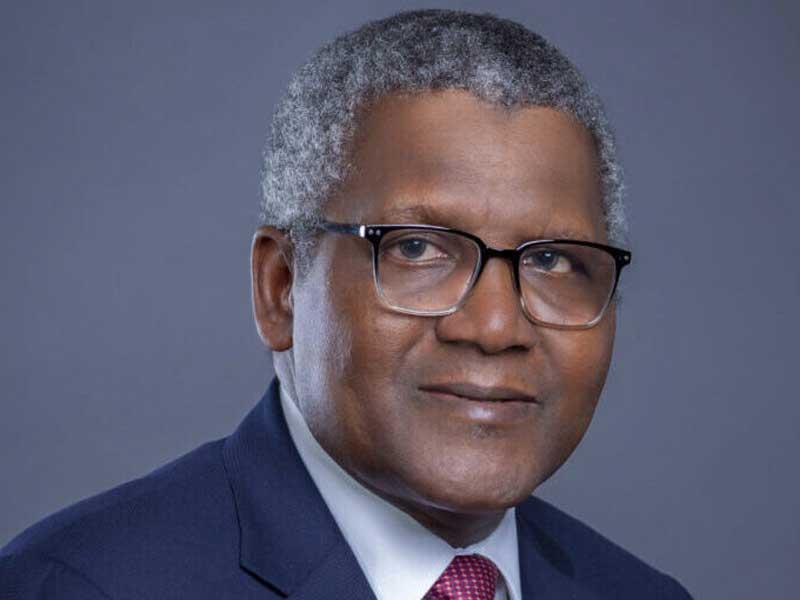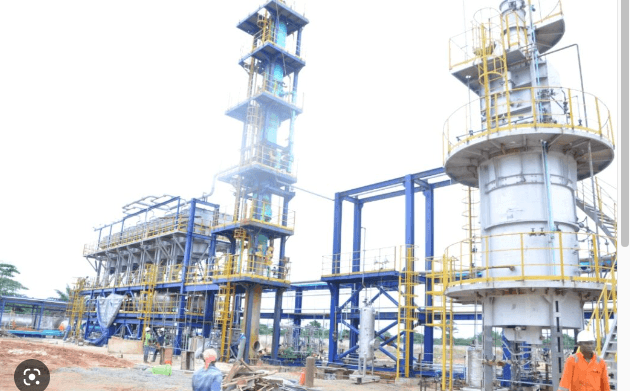Chineme Okafor writes that recent developments in the 650,000 barrels a day (bd) refinery project of Dangote Group suggest the project could define how best to build largescale refineries in years to come across the world
For decades, most advanced refineries and petrochemical plants globally have been coming online in China, Saudi Arabia and India. These include world-scale projects such as the Reliance Industry’s Jamnagar Refinery in India; the Zhanjiang Refinery in China; the Yanbu Refinery in Saudi Arabia; and the Sadara Chemical Complex, also in Saudi Arabia.
But while Asia and the Middle East had been dominating the recent refinery project landscape, there are changes in the narratives with the Dangote Refinery reported to have embarked on a refinery construction project that is bringing in the best equipment in global refining history.
By implication, Dangote’s efforts would, when completed, place Nigeria within the league of biggest global refiners of the world with 650,000 barrels a day (bd) refining capacity.
Setting a Pace
By exploring new technology in its choices for the biggest and best equipment in the history of global crude oil refining, the Dangote refinery has begun to set a pace in the global oil refining sector.
The company’s appetite for the best refinery equipment was recently showcased with its importation of what was described as the world’s largest crude oil distillation column, reportedly constructed specifically to handle the operations of the 650,000bd single-train refinery located in the Lekki Free Trade Zone area of Lagos.
According to Dangote Group, due to its size, while loading the equipment on the vessel from China, it first had to be transported from the fabrication unit on a barge to a river port where a special Roll-on/Roll-off (RoRo) vessel was engaged for its movement.
It equally said the equipment had to be transported using self-propelled modular transport, with the vessel moored in a unique method called the Mediterranean moor, wherein the equipment was rolled in straight from the aft of the vessel.
With the latest development, the Dangote refinery project is said to be in the process of upstaging other recent high-profile projects, such as the majority of hydrocarbon processing plants previously commissioned in the more developed regions of the world.
Earlier this year, the company reportedly installed the biggest Residual Fluid Catalytic Cracker (RFCC) to confirm its desire to make Nigeria a top refining hub for petroleum products in Africa.
Supposedly one of the most important conversion processes used in petroleum refineries, the Dangote refinery also stated its decision to go all the way in procuring and implementing the latest processing, analytical, automation, and environmental technologies at the plant.
The refinery, as was gathered is being designed to accommodate multiple grades of domestic and foreign crude including shale oil to process into high-quality gasoline, diesel, kerosene, and aviation fuels that would meet the Euro-V emissions specifications, and polypropylene.
The company said this would include a crude distillation unit, single-train residual fluid catalytic cracking unit, diesel hydro-treating unit, continuous catalyst regeneration unit, alkylation unit, and a polypropylene unit.
Speaking during the arrival of the vessel, which conveyed the crude distillation column to Dangote jetty, the company’s Head of Maritime and Port Infrastructure, Mr. Rajen Sachar, disclosed to journalists that the equipment was the biggest single-train facility used for refining crude.
Sachar, explained that the refinery equipment, which was manufactured by Sinopec in China, is the primary unit processor of crude oil into fuels capable of refining 650,000bd.
He added that the refinery was designed to be Africa’s largest, with the potential to transform the country from an importer of fuel to a net exporter of petroleum products.
According to him, the technology is significant to Nigeria and Dangote refinery because, “this is the largest crude oil processor in the world.”
He also stated that the technology used in the refinery would bring positive multiplier effect to the company and the economy of Nigeria. This, he noted would be made possible by its supply of refined products to the huge market that spans through West Africa to other parts of the continent.
“The crude distillation column is the largest in terms of distilling capacity which is 650 thousand barrels per stream day. Presently, this is the world’s largest single train refining column.
“It is the largest diameter, longest length and the heaviest single-unit equipment in domestic export equipment. It will be installed in the world’s largest single-series refinery – the 32.5 million tonnes/year Dangote Refinery in Nigeria,” said Sachar.
He said equipment was shipped through vessel from China to avoid been damaged and traffic congestion if it came through Apapa Wharf and needed to be transported by road.
On the capacity of the Dangote jetty which received the equipment, he said: “The basis of the design of the jetty was made, considering the heaviest and the longest cargoes. Therefore, the jetty was built with a permissible load density of 15 T/m2 (tons-force/square meter), which will enable it to handle vessels of up to 160m. The jetty is also designed with the capacity of carrying out both the Roll-On and Roll-Off, as well as Lift-On/ Lift-Off operations.”
Ready to meet Nigeria’s fuel needs
To ensure the refinery realises its potentials, the Group Executive Director, Strategy, Capital Projects and Portfolio Development at Dangote Industries Limited, Mr. Devakumar Edwin, stated that a unique approach to project implementation at the refinery was adopted.
Edwin, who reiterated that the refinery is being designed to be the largest single train refinery in the world, noted that in its design, the refinery would maximise gasoline production and not diesel as done by most refineries of the world.
“It is the largest single train refinery in the world. It is about 50 per cent larger than the largest refinery and if you see the plot plan and the design, we have made provision for doubling this capacity.
“Petroleum refineries globally are all tuned to maximise the production of diesel because diesel is the largest produced commodity. If you go to the US, Europe, India, Singapore and the Nigerian refineries too, they are all tuned to maximise diesel production, but Nigeria is unique because the consumption of Premium Motor Spirit (PMS) is the maximum in Nigeria, compared to even diesel.
“So, we took a unique approach. This refinery should be designed to maximise gasoline and not diesel; that’s one of the first things we focused on,” he said.
Edwin further stated: “That’s why this refinery can meet the entire gasoline requirements of Nigerians and still have a bit of surplus to export.”
He also explained that in making the business choices it had made in the refinery project, the company, “adopted the normal three pillars we use in any business we enter; the first is, go for the latest technology with focus on minimising the cost of production because of the technology involved, and as part of the process we went for a very complex refinery because for every barrel of crude that goes in, we want to extract the maximum value from it.”
“So, that is why we are maximising by having an integrated petrochemical complex, to maximise the gasoline which is the highest in demand. So, everything will be high-value product; that’s our primary focus,” Edwin added.
Apart from making Nigeria a refined product exporting country, he explained that the refinery is expected to attract more foreign investors to the country.
In his assessment, the Minister of State for Petroleum Resources, Chief Timipre Sylva, reportedly affirmed the refinery’s ability to boost foreign direct investment (FDI) into Nigeria.
Sylva reportedly said that it was necessary for the refinery project to get maximum supports to ensure its completion, and help Nigeria reverse its ugly fuel importation habit.
“This is a very heart-warming moment for all of us as Nigerians. There is no way a project of this magnitude will be going on and government will not be interested. Anywhere in the world, if a citizen of a country has committed so much money into investing in this kind of massive project, government must show interest.
“I must say now that Dangote Group has turned this project to the story of all of us, we must all support this project to succeed, because the success of this project signals a lot,” Sylva said during a visit to the project site.
“Of course, I am sure that the whole world is looking at the success of this project. Investors all over the world will look at the success of this project and will come to Nigeria to at least also enjoy the benefit of investing here.
“So, we are actually here to assure you, Dangote Group, that as a government, as NNPC, we will support this project as much as we can. You have definitely done very well,” he added while insisting that the project signified that Nigeria still possessed an enabling environment for businesses to thrive.




